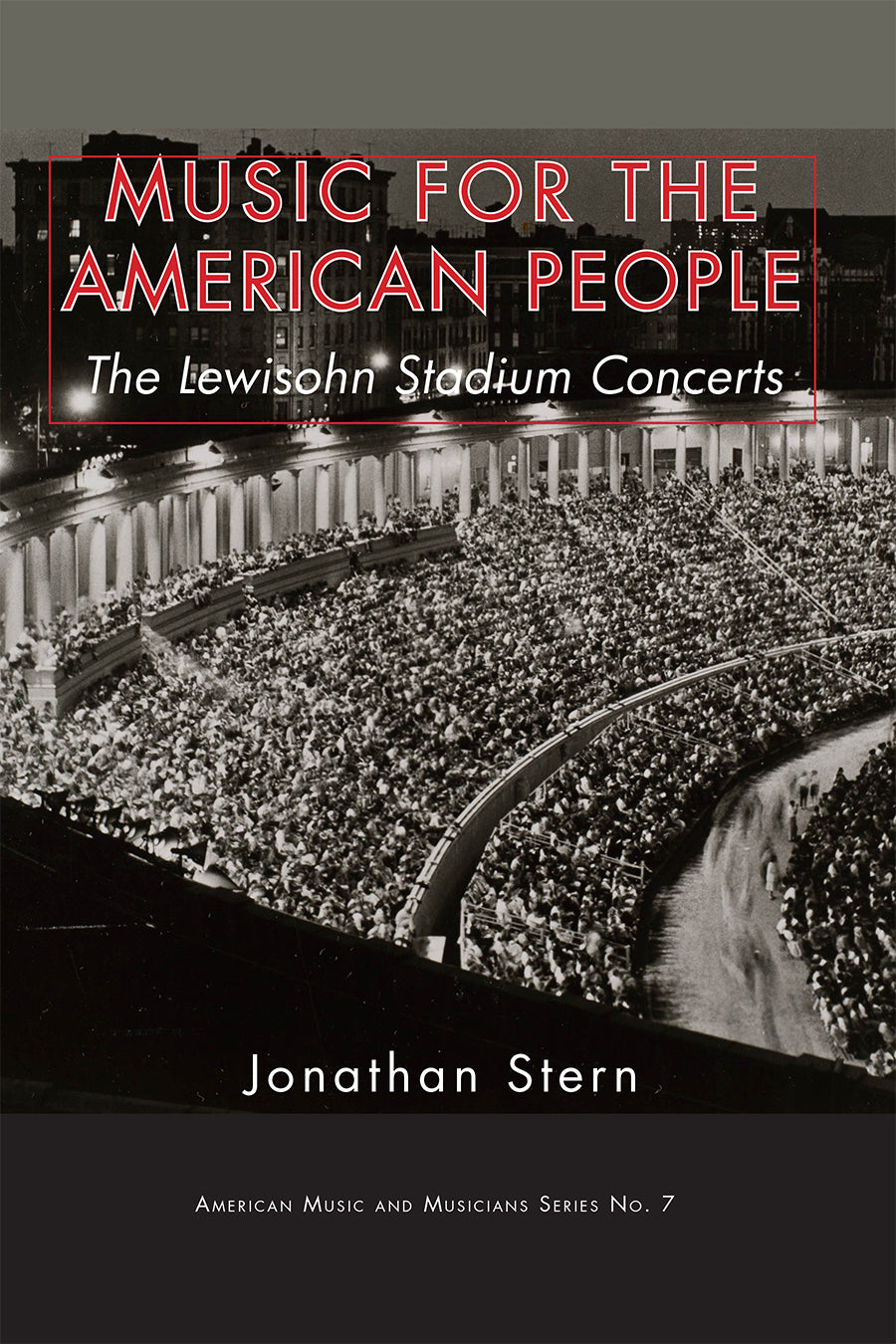
PENDRAGON PRESS - 945193
Music for the American People: The Lewisohn Stadium Concerts
Author: Jonathon Stern
Publisher: Pendragon Pr
Pickup currently unavailable at Juilliard Store
Music for the American People: The Lewisohn Stadium Concerts
Juilliard Store
Pickup currently unavailable
144 West 66th Street
New York NY 10023
United States
Choose options
Pickup currently unavailable at Juilliard Store
Music for the American People: The Lewisohn Stadium Concerts
Juilliard Store
Pickup currently unavailable
144 West 66th Street
New York NY 10023
United States
Pickup currently unavailable at Juilliard Store
Music for the American People: The Lewisohn Stadium Concerts
Juilliard Store
Pickup currently unavailable
144 West 66th Street
New York NY 10023
United States
For many New Yorkers of a certain age, mention of Lewisohn Stadium conjures many fond memories of concerts of beautiful music performed in most cases by the New York Philharmonic Orchestra on warm summer evenings outdoors. Music for the American People: The Lewisohn Stadium Concerts brings back those memories while introducing them to those who are either too young to remember or were born years after the Stadium’s razing in 1973. Although several books discuss either the early years of the Stadium Concerts or the life of Stadium Concerts Chairperson Minnie Guggenheimer, this is the first book ever to discuss the concerts themselves. In particular, the book focuses on the conductors, soloists, and repertoire in a way never undertaken before by any scholar. While the book explores the Stadium Concerts classical orchestra canon to a large extent, author Jonathan Stern emphasizes in particular the effect the festival had on American music. The book discusses how the Stadium Concerts began in an era in which American classical music was championed like it rarely has been. It also makes the case that the Stadium Concerts may have done more for contemporary American music than any other musical institution of the early twentieth century through its frequent advocacy of the music of George Gershwin. This advocacy was soon taken up by other summer orchestra festivals that were founded after the birth of the Stadium Concerts. Among these festivals were the Hollywood Bowl Concerts, Tanglewood, Ravinia, and the Robin Hood Dell concerts, all of which are also discussed towards the end of the book. Readers will also learn how the Stadium Concerts coped with the challenges faced by America in general, not only surviving wars and the Great Depression but even thriving artistically and otherwise during these troubling times. Lewisohn Stadium was a summer home away from home for millions of New Yorkers, enabling them to put aside their differences and join together in enjoying great music performed by many of the world’s leading performers. In an era when people from all walks of life sought to better themselves in ways not often seen today, New Yorkers often said to each other, “Meet me at the Stadium.” As such, Music for the American People: The Lewisohn Stadium Concerts fills a much-needed void in music and New York City scholarship while recounting a particularly happy chapter in the history of New York City culture.
